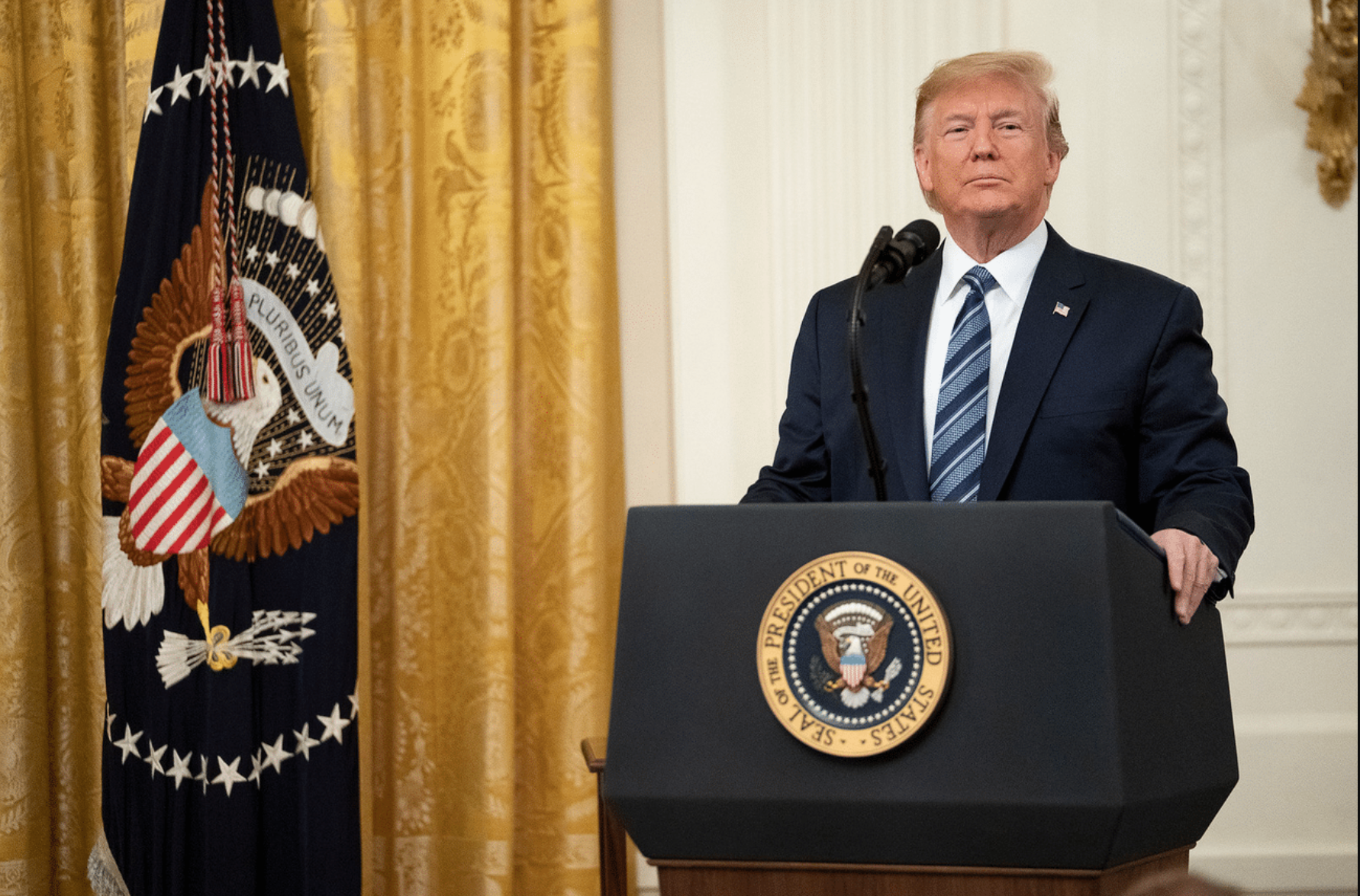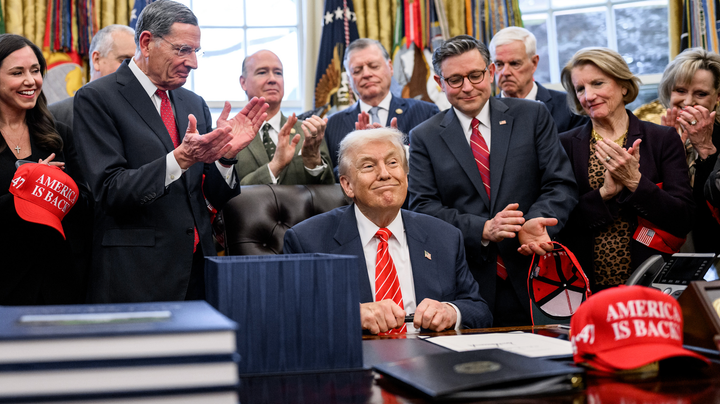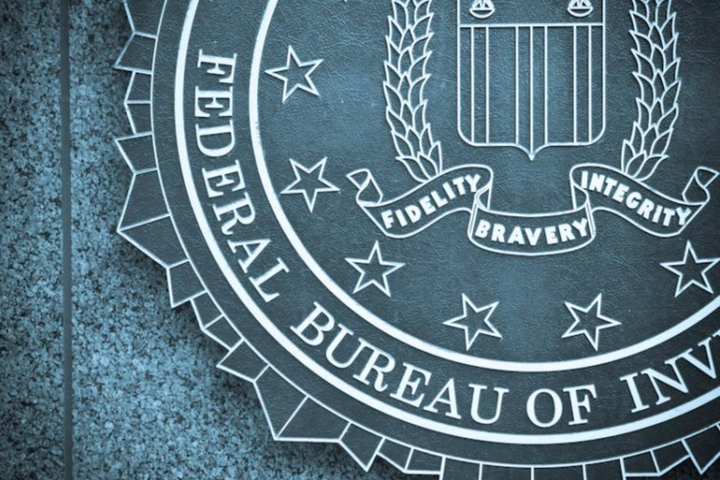Justice Department Unlikely To Charge Trump With Violating The Espionage Act

This article was funded by paid subscribers of The Dissenter Newsletter. Become an annual paid subscriber to help us continue our independent journalism.
*Article was updated on August 12 to reflect further developments.
Mary McCord, who was the chief of the United States Justice Department’s national security division under President Barack Obama, said that former President Donald Trump may have violated the Espionage Act.
On the “Skullduggery” podcast from Yahoo! News, McCord contended that provisions in the World War 1-era law, which has been applied to the mishandling of classified information, potentially covers what Trump allegedly did—"removing documents from their proper place," losing or stealing information, and other acts of "gross negligence."
But the Espionage Act is part of the two-tiered US justice system. Only lower-level federal government employees or contractors are punished with Espionage Act charges.
High-ranking officials are able to use their status to avoid charges that would turn them into convicted felons.
The FBI invoked a provision of the Espionage Act to secure a warrant [PDF] to search Trump’s Mar-a-Lago home and reclaim control of classified documents. A report from the Washington Post claimed that in the 20 boxes retrieved by agents there were top secret documents related to nuclear weapons.
Prior to the raid, the National Archives and Records Administration (NARA) coordinated with Trump representatives in 2021, and in January 2022, 15 boxes were transferred to the National Archives. Some of the records contained classified information so NARA contacted the Justice Department [PDF].
A grand jury subpoena for "sensitive documents" was issued to Trump in the spring, according to NBC News. The subpoena related to documents that Trump's legal team discussed with Justice Department officials around that same time.
The National Archives and Records Administration (NARA) coordinated with Trump representatives in 2021, and in January 2022, 15 boxes were transferred to the National Archives. Some of the records contained classified information so NARA contacted the Justice Department [PDF].
FBI agents raided Trump’s Mar-a-Lago home on August 8, and they reportedly retrieved at least 10 boxes of documents. Some of those files allegedly contain classified information.
The fact that those boxes were not turned over when Trump representatives coordinated with NARA likely factored into the FBI’s decision to deploy agents to reclaim the documents.
The Justice Department routinely investigates and prosecutes US government employees and contractors who take classified information and try to keep the records in their home. Such individuals are typically charged with “unauthorized possession” or the “willful retention” of “national defense information.”
On May 18, 2021, Kendra Kingsbury, a 48 year-old FBI intelligence analyst who had a top secret security clearance, was charged [PDF] with willfully retaining national defense information in violation of the Espionage Act. Between June 2004 and December 2017, she allegedly took documents on FBI counterterrorism operations as well as CIA documents on al Qaida in Africa, which she kept at her home in Dodge City, Kansas.
CIA contractor Reynaldo Regis pled guilty to retaining classified information on May 11, 2018. He was accused of copying classified information into personal notebooks. FBI agents found “approximately 60 notebooks containing classified information” when they searched his Maryland home.
Harold Martin was a Defense Department contractor, who was similarly charged with violating the Espionage Act on February 8, 2017 [PDF]. During the span of two decades, Martin took digital and hard copies of NSA documents, US Cyber Command documents, and a CIA document on foreign intelligence collection. They were kept in his Maryland home and his vehicle.
Mohan Nirala pled guilty on September 16, 2016, to willfully retaining national defense information and violating the Espionage Act. He was an imagery scientist at the US National Geospatial-Intelligence Agency (NGA). FBI agents found more than 20 secret and top secret documents at his home in Maryland.
Working as a computer systems administrator at Soto Cano Air Base in Honduras, Chris Glenn faced Espionage Act charges in 2014 after the FBI found that he had encrypted files from the Defense Department and US Southern Command, which he kept on an “internet-accessible network storage device located in his residence in Honduras.”
Mark Unkenholz was an NSA employee in Maryland, who was part of an office that worked with industry partners. On March 29, 2022, he was accused of willfully retaining national defense information and violating the Espionage Act in his personal email account.
As an NSA employee, Unkenholz did not have physical copies of the records in his home. He possessed the files by having the documents in his personal email, and the FBI learned of the retention because he sent the documents to a person at a company who was not authorized to receive the information. (Note: Former Secretary of State Hillary Clinton had classified information on her private email server that created an “increased risk of unauthorized disclosure.”)
Then there is the case of the “collector of rare documents.” In 2012, Secrecy News reported that James Hitselberger, a Navy contract linguist in Bahrain, was charged with violating the Espionage Act because he had a habit of taking classified documents to his “living quarters” to read.
The Hoover Institution at Stanford University had a Hitselberger collection that contained “political posters and leaflets that he gathered in pre-revolutionary Iran.”
FBI agents uncovered classified documents in Hitselberger’s possession as well as his collection at the Hoover Institution.
In a rare event, David Petraeus, who was a CIA director and Pentagon chief, faced accusations of unlawfully retaining national defense information when he kept eight “Black Books” in his home [PDF]. The books contained highly classified information with the “identities of covert officers, war strategy, intelligence capabilities and mechanisms, diplomatic discussions, quotes and deliberative discussions from high-level National Security Council meetings,” and notes from discussions with President Barack Obama.
Petraeus later shared the Black Books with Paula Broadwell, who he had an affair with while she was writing a biography, All In: The Education of General David Petraeus.
Because Petraeus was a former high-ranking official and a revered US military general in Washington, his attorneys were able to convince the Justice Department to not charge him with violating the Espionage Act.
Petraeus was charged in 2015 with the misdemeanor offense of “unauthorized removal and retention of classified material,” which is part of the criminal code for public officers and employees.
None of the individuals charged with retaining or possessing information unlawfully had the same influence or power as Petraeus or Trump. They were lower class people that were unable to stop the Justice Department from treating them like spies.
Trump’s legal team should be able to learn from Petraeus’ legal team and negotiate with Justice Department behind closed doors so he is not charged with violating the Espionage Act (if the Justice Department under Attorney General Merrick Garland is even prepared to charge him with a crime).
Therefore, it will be stunning if the Justice Department pursues an Espionage Act prosecution.
No matter what the FBI uncovers and accuses Trump of doing with classified documents, he is still a former US president.
And regardless of the ultimate outcome, the documents that were at Mar-a-Lago belong to the public, not Donald Trump.




Comments ()